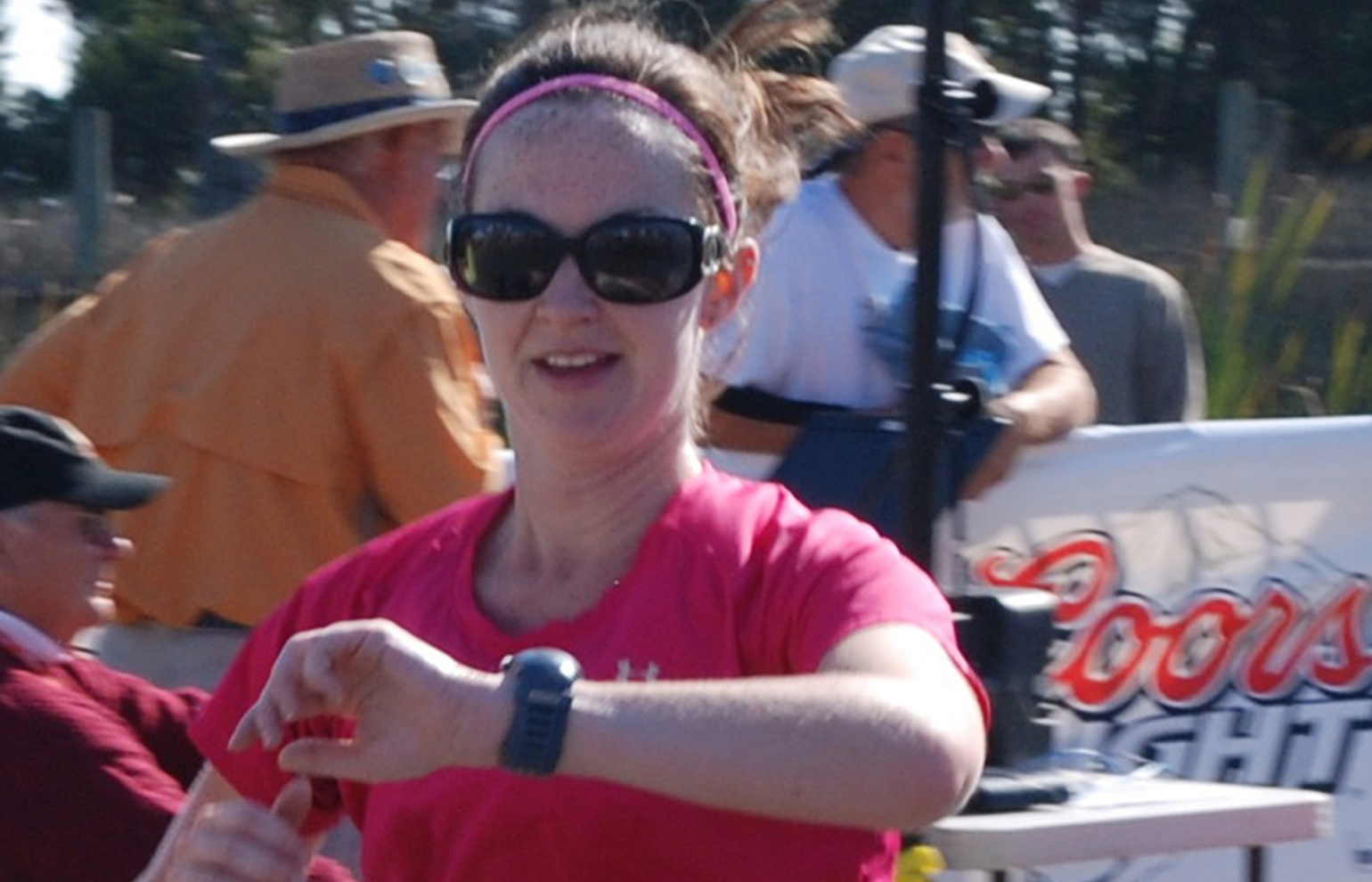As if it wasn’t stressful enough to check the weather, over and over, every single waking hour of every single day. And worry about whether someone at work has a cold or, my God, something more contagious. And keep an eye on all those acorns that have begun to litter the ground — a person could slip on one of those, twist an ankle, and all that hard work would go right down the drain.
On top of all that, Beth Graham had to live with the threat that Sunday’s Marine Corps Marathon would be canceled altogether because of the government shutdown.
Didn’t Congress know that Graham was tapering? How much is one woman expected to take?
“You work so long for one day, and it’s hard to think something like illness or weather or the government can ruin what you’re working for,” she said.
If you noticed more than the usual population of cranky, antsy, obsessive people in the running world last week, there is an explanation: Thousands of runners were winding down their training for the 38th running of Washington’s most famous marathon. In running vernacular it’s called “tapering.”
It’s that period two to three weeks before the big race when runners begin to sharply cut back on their mileage, resting their legs for the big day. Their bodies heal, but their nerves take a beating.
Runners preparing to cover 26.2 miles spend several months getting used to rising before dawn four or five times a week, putting in 50-mile weeks, enjoying the freedom to eat what they want and savoring the endorphin rush that accompanies all that exercise. Then they have to cut back, quickly.
‘I want to train more’
It’s as if someone stole your morning coffee, every day for two or three weeks. You might not kill him over it, but you’d consider it. Robbed of their favorite pastime, runners brood about losing fitness, gaining weight, injuring themselves and race day weather, to name just a few of their favorite obsessions.
“I hate it,” said Graham, a 30-year-old defense contractor from Fairfax, Va. Her husband isn’t wild about it either.
Rich Edson, a 32-year-old Washington correspondent for the Fox Business Network who is training for his first marathon, agreed. “I’m getting anxious and I’m getting nervous,” he said. “I want to train more. I want to go out (running) more. But fortunately, I’m working quite a lot.”
“This is really my first experience with tapering,” he added. “I’ve read enough to have no idea what I’m doing. … It’s so difficult to hold yourself back when you’re just pushing, pushing, pushing all the time, and learning to enjoy it.”
In his training bible “Marathon,” longtime coach and marathoner Hal Higdon polled his readers, asking whether “taper madness” is real. Seventy-five percent said it is.
“There is no real cure,” Higdon advised. “Cross-training is not the answer. Going on an eating binge as a mood reliever is a very bad idea. Using the extra time to reconnect with your spouse might be the best choice, unless your spouse is running the marathon too.”
Focus on logistics
Graham’s husband, David, is not running the marathon. So he is calm when his otherwise normal wife turns a tad compulsive during her taper.
“I focus on the logistics of the race,” she said. “Familiarize myself with water stops, the timing of where I need to be when. I read a lot of race reports.
“I check the weather. I really like the hourly forecast. But it’s a little too soon,” she said last week, the disappointment evident in her voice.
“Last year I ran (the) Outer Banks (marathon) and there was the hurricane. That added a whole new layer of weather obsession.” Sandy hit New Jersey and New York instead, sparing the marathon.
Part of the problem is that distance runners tend to be a little OCD to begin with. They accumulate months of data on miles, pace and calories on their Garmin wristwatch GPS devices or their iPhones. They leave few details to chance.
Before the Steamtown Marathon in Scranton, Pa., “I can’t tell you how many times I called the hotel to say ‘Am I going to have a king bed or two queen beds? And am I going to have a refrigerator?,'” Graham remembered. Before she eats her yogurt, she checks to make sure it’s not hiding something nasty. Several days before a 50-kilometer race two years ago, she came down with shingles. She ran anyway. “It probably wasn’t my best decision,” she admitted.
Then there are those pesky acorns on Virginia’s W&OD trail, where Graham likes to train.
“All it would take is one perfectly placed acorn and you’re down for the count,” she said.
Again, Graham isn’t like this when she isn’t tapering. She leads a normal life. She has a good job at the Pentagon and a cat. She’s co-leader of the Vienna-Oakton chapter in Virginia of “MomsRUN This Town,” a nationwide running group for women. Her chapter has 500 members.
With the government shutdown resolved, the Marine Corps Marathon went on as planned.
“It’s a very stressful time,” Graham said.



